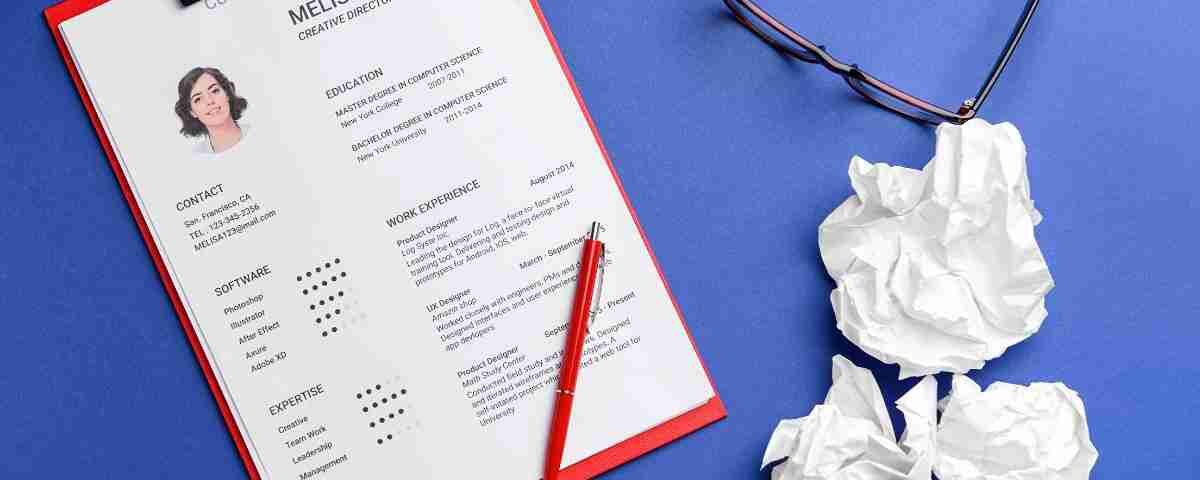
CV vs Resume in India: Understanding the Difference
June 6, 2025
Internship Resume for Freshers: How to Write a Resume for Internship That Stands Out
June 29, 2025Resume Objective for Freshers: Crafting Your Career Objective
Your resume objective is your first handshake with a potential employer. As a student or recent graduate, you may feel you lack work experience, but a well-written career objective can highlight your enthusiasm, skills, and goals. In a few concise lines at the top of your resume, you’ll introduce yourself and set the tone for your job application. Think of it as a short, powerful snapshot of who you are professionally and what you aim to achieve. A strong objective not only grabs attention, but it also shows recruiters that you have direction, motivation, and something valuable to offer. Freshers in particular benefit from a clear objective because it highlights your ambition and willingness to learn, helping you stand out in a crowded job market. Including an impressive career objective or a compelling career objective can help freshers in their job search by showcasing their potential and increasing their chances of landing their dream job.
In this article, you’ll learn what a career objective is, why it matters, how to write one effectively, and how to tailor it to your goals and industry. We’ll share tips, examples, and even free resume templates you can download to get started. By the end, you’ll feel confident writing a resume objective that reflects your best qualities and career aspirations. This guide will focus on how to write a career objective for a resume, with special attention to crafting a career objective for freshers to help you stand out.
What Is a Career Objective?

At its core, a career objective is a concise statement of your professional goals and intentions. It typically appears at the top of a resume or CV. As the Blockchain Council career site puts it, “a career objective is a brief statement at the top of your resume that describes your professional goals and how you aim to achieve them. It provides a snapshot of your career ambitions and what you hope to bring to a potential employer.” In other words, it’s a headline for your resume that highlights your direction. Including a well-crafted career objective on a resume is essential, as it helps recruiters quickly understand your goals and suitability for the position.
A resume objective (also called a career objective) usually consists of one to two sentences or a short paragraph. It explains the type of job you want and what you aim to accomplish in that role. Clearly specifying the job title you are targeting in your objective helps employers immediately see which position you are interested in. For freshers with little or no work experience, the objective often focuses on your education, relevant skills, and career aspirations. This is your chance to make a clear and positive first impression. Essentially, it answers: “What am I looking for, and what can I offer?” For example, a marketing graduate might write: “Recent marketing graduate seeking an entry-level position to apply my knowledge of digital marketing and social media strategy to help grow a company’s online presence”.
Difference between Career Objective and Resume Summary
A career objective can also reflect your personal values or enthusiasm. It’s different from a resume summary (which highlights past achievements) because it’s forward-looking, focusing on what you want to achieve rather than what you’ve already done. As Indeed.com advises, think of it as “a billboard or ad selling you as the right candidate”. In practical terms, it should be concise and tailored: typically just 2–3 lines. This brevity is key, since hiring managers often scan resumes quickly. For freshers, writing career objectives that are tailored to the specific job title and industry is a crucial step in making your resume stand out. A short, strong objective uses action verbs and relevant keywords to make a memorable statement.
Example definition:
“A resume objective (also called a career objective) is a one- to two-sentence overview of your short-term professional goals with an explanation of why you’re seeking employment. Resume objectives are often placed at the top of your resume to capture the hiring manager’s attention and should make your career goals clear.”
Key Elements of Writing a Good Career Objective

When crafting your objective, make sure it includes these essential elements:
Clear Goal: State the position or field you’re targeting. Make it obvious what role you want (e.g., “entry-level software engineer” or “marketing coordinator”). This shows the recruiter you know your direction.
Relevance: Tailor your objective to the specific job or industry. Mention skills or interests that match the role. For instance, if you’re applying for IT, highlight technical abilities; for marketing, emphasise creativity and communication. Aligning your objective with the employer’s needs makes it relevant.
Key Skills/Strengths: Include a couple of your most important skills or strengths that relate to the job. These could be hard skills (like coding languages, database management skills, or design tools) or soft skills (like teamwork, strong communication skills, communication skills, problem-solving skills, project management skills, or critical thinking skills). Emphasise skills you have that the employer values. For example, “strong analytical skills and a solid grasp of data analysis tools”, “excellent communication and time-management abilities”, or “proven project management and problem-solving skills.”
Value Proposition: Explain what you bring to the table. In one short phrase, show how your background or qualities will benefit the company. For instance, “aiming to contribute to Quantix Capital’s growth with my strong analytical skills”. This shifts focus from what you want to what you’ll offer.
Conciseness: Keep it brief – usually 2–3 sentences or bullet-style lines. Every word should count. Avoid fluff, filler words, or vague statements. A concise objective holds the reader’s attention.
Personalisation: Show that this objective is written for this job (not a generic template). Use specifics like the company name or role, if possible. Personalising tells the employer you’re truly interested.
Career advisors highlight that a good objective is “clear and specific,”“relevant,”“brief,” and includes a strong “value proposition.”. Think of it as telling the hiring manager: “I know exactly what I want and I have the skills to get it done.”
Tips for Writing a Career Objective
Use Active Language: Start with a strong adjective or a verb. For example: “Motivated graduate”, “Eager to”, “Seeking to”, etc. This makes the statement dynamic.
Mirror the Job Description: Scan the job posting for key terms or requirements, and weave a couple of them into your objective. This shows alignment and can help your resume pass any keyword filters. For example, if the listing asks for “team player” and “SQL experience,” mention those aspects if true for you.
Focus on the Company: If you know the company name or specific goals, mention them. (“Seeking an intern position at Greenloop Ventures to…”). This demonstrates you’ve done your homework and are genuinely interested in them.
Be Honest and Realistic: Never exaggerate or lie. If you have strong organisational skills, say so; if you’re still learning a software, perhaps mention your coursework instead of claiming mastery.
Avoid Vague Clichés: Phrases like “hardworking individual seeking challenges” are bland and overused. Instead, be specific: “hardworking computer science graduate proficient in Java seeking”.
Stay Positive: Use positive wording. Emphasise eagerness and willingness to contribute. Avoid negative phrasing like “I lack experience but…” – instead, turn it around: “Eager to leverage my academic projects and passion for X to contribute to…”.
Proofread: Grammar and spelling mistakes can ruin an objective. Keep it sharp and error-free. Sometimes reading aloud helps catch awkward phrasing.
Career Objectives for Freshers

As a student or recent graduate, you may not have years of work history, but that doesn’t mean your resume objective can’t shine. In fact, a well-crafted objective is especially important for freshers. It highlights your enthusiasm, relevant training, and growth mindset. Employers reading a fresher’s resume are looking for potential and fit; your objective should give them confidence in both. A strong career objective for freshers should clearly state what type of job opportunity you are seeking and how it aligns with your skills and aspirations.
When writing for your fresh graduate status:
Emphasise your education and training. Mention your degree, major, and any honours or relevant coursework. For example, “Bachelor of Business Administration with internship experience in finance…”
Highlight internships, projects, or volunteer work. These experiences can demonstrate skills and initiative. Even a school project can show the ability to apply knowledge.
Showcase soft skills. Freshers often lack job experience, so promote abilities like teamwork, communication, problem-solving, and leadership. These are valuable in any entry-level role.
Express eagerness to learn. Employers know you’re a beginner; stating that you’re excited to gain skills shows humility and ambition. For example, “eager to learn” or “passionate about contributing”.
Emphasise your motivation for professional growth and the desire to gain professional exposure as key reasons for pursuing the position. For a detailed guide on crafting an effective self-introduction for freshers, check out this resource.
The Blockchain Council emphasises: “When you have no work experience, crafting a career objective can seem challenging. The key is to highlight your skills, education, and enthusiasm for the role. Focus on what you can bring to the company… and mention your eagerness to learn and grow within the company.”. So point out any relevant coursework, volunteer experience, or technologies you’ve studied, and match them to the role.
Example:
“Motivated and detail-oriented individual with strong organizational skills and a passion for customer service. Seeking an entry-level position at Trustiva Holdings to leverage my educational background and interpersonal skills while gaining valuable experience and contributing to the team.”.
(This example shows how a fresher emphasises transferable skills and a willingness to contribute.)
Another tip: tie your career objective to your long-term goals. Even as a fresher, you likely have ideas about your career path. Use your objective to hint at these aspirations. For instance, a student may write, “Seeking an entry-level engineering role where I can apply my mechanical design knowledge and grow towards a project management position.” This shows ambition and direction. Expressing your desire to build a successful career and work in a dynamic organisation can further demonstrate your commitment to growth and adaptability.
Career Objectives for Freshers in Different Job Profiles
Every field has its own “language” and priorities, so tailor your objective to match your industry. Here are some quick examples for different fields that illustrate how objectives might differ:
Information Technology (IT) / Software: Emphasise technical skills and projects.
Example: “Computer science graduate seeking a software developer role to utilise my coding skills and knowledge of programming languages to develop efficient software solutions.”.
Example: “Aspiring IT professional eager to contribute to innovative software solutions and participate in all phases of software development, leveraging my academic background and passion for technology.”
Example: “Recent graduate with strong data analysis skills seeking an entry-level IT position to apply my analytical abilities and technical knowledge to support data-driven decision-making.”
Marketing: Highlight creativity and digital skills.
Example: “Recent marketing graduate seeking an entry-level position to apply my knowledge of digital marketing and social media strategy to help grow a company’s online presence.”.
Example: “Marketing fresher aiming to design and implement innovative marketing strategies and marketing campaigns to maximise brand awareness and drive measurable business results.”
Business / Finance: Stress analytical and leadership skills.
Example: “Business administration graduate aiming to join a reputed firm where I can apply my management training and strong analytical abilities to support organisational goals.” (adapted).
Example: “Recent graduate seeking an accounting and financial analyst position to utilise my financial management skills and analytical expertise in supporting business growth and financial decision-making.”
Engineering: Focus on problem-solving and technical background.
Example: “Aspiring engineer with a degree in mechanical engineering looking for an opportunity to use my technical skills and problem-solving abilities in a dynamic and innovative company.”.
Example: “Engineering graduate eager to apply my technical expertise and innovative approach to solve complex engineering challenges and contribute to organisational success.”
Human Resources / Administration: Mention communication and organisation.
Example: “Recent HR graduate with internship experience in recruitment, seeking an entry-level HR Assistant role to apply my organisational skills and passion for human resources management.”. Example: “Fresher in human resource management seeking an entry-level HR position to develop my skills in recruitment, training, and HR operations while contributing to organisational growth.”
Example: “Entry-level HR professional aiming to foster positive employee relations and support effective communication within a collaborative work environment.”
Sales / Customer Service: Emphasise people skills and enthusiasm.
Example: “Motivated and goal-driven sales graduate with strong customer engagement experience, seeking a Sales Associate position to further develop my skills while contributing to increasing sales and customer loyalty.”.
Example: “Business development enthusiast seeking a sales role to leverage my lead generation skills and drive new client acquisition, supporting company growth and market expansion.”
Call Centre / Support: Note communication and problem-solving.
Example: “Enthusiastic communicator with strong conflict resolution skills, eager to start my career as a Call Centre Representative where I can deliver excellent customer service and support.” (Based on.)
Example: “Customer-focused professional seeking a call centre role to enhance customer satisfaction and utilise my customer relationship management abilities to build lasting client connections.”
Healthcare: (Even without direct examples above) Emphasise compassion and reliability.
Example: “Compassionate nursing student seeking a healthcare assistant position to apply my patient-care skills and eagerness to learn, while contributing to a caring medical team.” (Adapted for illustration.)
Example: “Dedicated fresher aiming to join a team of healthcare professionals, utilising my strong work ethic and commitment to quality patient care in a clinical environment.”
Creating a Career Objective for a Resume

Writing a great objective often starts with understanding your own career goals. Clear career goals not only guide your professional journey but also make your resume objective more focused. In this section, we’ll look at how to set those goals, why they matter, and tips to make them actionable.
A well-defined career objective can support your job search by helping you identify the right job opportunity that matches your skills and interests.
Setting Career Goals
First, think about your short-term and long-term goals. Short-term goals might include getting an entry-level job in your field, learning a new skill, or gaining a particular certification. Long-term goals could be becoming a team leader, earning a specialised degree, or starting your own business. Once you know what you want, you can articulate part of that as an objective.
Many professionals recommend using the SMART goals framework: make your goals Specific, Measurable, Achievable, Relevant, and Time-bound. For instance, instead of a vague goal like “improve coding skills,” a SMART goal would be “complete an online course in Python and build a project by June.” This not only gives clarity but also something you can write about in interviews and resumes.
Another way to set goals is to create a professional roadmap. Imagine where you want to be 5 years from now. Then outline steps to get there (e.g., internships, volunteer roles, entry-level positions, further education). This exercise helps pinpoint what objectives to write. Setting clear goals is essential for building a successful career and supporting ongoing professional growth. For example, if your long-term goal is to become a digital marketing manager, an early goal might be “gain experience in SEO and social media.”
Importance of Career Goals
Why bother setting these goals? For freshers, especially, career goals do a lot for you:
Roadmap Creation: Defining goals early gives you a career roadmap. You’ll have a plan for gaining skills, certifications, and experience over time. This roadmap makes your journey less random and more strategic.
Reduced Anxiety: Uncertainty about the future can be stressful. Knowing what you’re aiming for before a job decision comes up reduces anxiety. As one resource notes, having clear career goals helps reduce stress around making important career decisions.
Efficient Use of Time: With goals set, you avoid wasting time on irrelevant tasks. You focus on activities that move you toward your objectives. For example, if you know you want to work in healthcare, you won’t spend months exploring unrelated fields. This efficient focus is backed by career advisors who say that goals help you use time efficiently and avoid pursuing credentials or experiences unrelated to your profession.
Motivation and Growth: Goals provide motivation and inspiration. When you hit a milestone (like finishing a course or project), it builds momentum. Conversely, on tough days, a clear goal can reignite your passion, as career experts explain that fresher goals “improve motivation and provide something to spark inspiration.” Clear goals also support professional growth and help you gain professional exposure, both of which are essential for advancing your career and broadening your industry knowledge.
Clear Communication: Finally, having career goals lets you communicate better with employers and mentors. If asked about your future, you can confidently share a plan. This clarity shows maturity and ambition, traits employers admire.
In short, setting career goals turns your aspirations into a plan. It keeps you on track and gives your resume objective real substance. When you mention a goal in your objective, you’re not just wishful thinking – you have a strategy behind it.
Tips for Setting Career Goals
Here are some practical tips to set effective career goals:
Be Measurable: Whenever possible, attach numbers or timelines to your goals. For example, “land a graphic design internship by the end of the summer” is better than “find a design internship.” Measurable goals (which can be tracked) are more motivating and attainable.
Align Short- and Long-Term Goals: Make sure your immediate goals build toward your ultimate ambitions. For instance, if you want to run projects someday, a short-term goal could be “lead a small project team next year.” Aligning goals ensures each step contributes to the bigger picture.
Seek Guidance: Talk to mentors, professors, or industry professionals about your goals. They can provide advice, resources, or feedback you might not have thought of. Indeed advises leveraging a mentor or your network to help develop and reach your goals. For instance, let your manager or professor know you aim to learn a specific skill; they might assign you projects that help.
Stay Flexible: Goals are not set in stone. As you gain more experience and information, be willing to refine or adjust your goals. What seemed ideal as a junior might change once you see the field. It’s okay to pivot as you learn more about yourself and the industry.
Document Your Goals: Write them down and review them periodically. This keeps them concrete and top-of-mind. Seeing your goals in writing helps you evaluate progress and stay accountable.
Finding the Best Career Objectives

Seeing concrete examples can spark ideas. Below are sample career objectives and case studies to guide you. We also cover more field-specific examples in diverse industries, so you can adapt them to your own background. The aim is to inspire you, not to copy; use these as templates to shape your own unique statement. These examples will help you craft the best career objective and a strong objective for resume objective that highlights your goals and skills effectively.
Career Objective Examples for Freshers in Various Fields
Finally, let’s look at more tailored examples by field (beyond the examples earlier) to see the range of possible objectives. Remember to adjust the wording for your experience and industry. Get a job after graduation in India with these sample career objectives for different fields:
Information Technology: “Recent IT graduate with hands-on experience in programming and troubleshooting. Seeking an entry-level IT Support Specialist role to apply my technical knowledge in supporting IT operations and contributing to technological improvements.”
Artificial Intelligence / Data Science: “Passionate and driven AI graduate with a solid foundation in machine learning and data analysis. Seeking an entry-level AI Developer role to help design and implement innovative AI solutions, contributing to technology-driven projects.”
Marketing & Branding: “Highly motivated marketing graduate with hands-on internship experience in digital marketing and brand management. Seeking an entry-level role as a Marketing Associate to assist in creating effective marketing strategies and campaigns.”
Human Resources: “Recent HR graduate with practical internship experience in recruitment and employee management. Seeking an entry-level HR Assistant role to apply my organisational skills and passion for human resource management at a growing company.”
Sales / Customer Service: “Enthusiastic and personable customer service professional, skilled in conflict resolution and communication. Looking to apply my customer support experience as a Customer Service Representative to help enhance client relationships.”
Finance / Accounting: “Accounting graduate aiming to start my career at a reputable firm, utilising my strong background in financial analysis and reporting. Ready to contribute to accurate bookkeeping and support the finance team’s success.” (Adapted in the style of provided examples).
Healthcare / Nursing: “Compassionate nursing graduate seeking a position as a Clinical Support Assistant. Eager to apply my patient-care skills and academic knowledge of healthcare procedures to deliver quality care and support the medical team.” (An illustrative example.)
Engineering (other specialisations): “Civil engineering graduate keen to work on innovative infrastructure projects. Seeking an entry-level engineering position where I can apply my technical design skills and contribute to safe, sustainable developments.” (For those in civil/structural engineering.)
he key for any field is to mention the most relevant skills or knowledge and to state clearly what role you want and why. For example, a healthcare resume objective often mentions empathy or patient interaction, while a finance objective highlights numerical or analytical skills. Always connect it to the company’s needs: hiring managers should immediately see why you’re a fit.
Conclusion
Your resume objective is the bridge between who you are now and who you want to become professionally. As a fresher or student, it’s a golden opportunity to introduce yourself and make a memorable first impression. By clearly stating your goals and showing enthusiasm, you signal to employers that you’re ready and motivated. Remember to keep it concise, tailored to the role, and reflective of your unique strengths.
As you finalise your objective, ask yourself: Does this statement highlight what I can offer and what I want to achieve? If yes, you’re on the right track. Don’t be afraid to revise it as your goals evolve – a good objective grows with you. And whenever you apply for a new job, tweak the objective to match that specific role. This customisation shows you’re paying attention and truly interested.
Finally, equip yourself with a professional resume format to showcase your objective and other details. There are many free resume templates available online to get you started quickly. We’ve gathered a selection of reputable resources below with hundreds of ready-to-use templates. Use these to give your resume a clean, organised look so that your new objective stands out in style. Good luck – your career journey is just beginning, and your objective is the first step on an exciting path!
Free Resume Template Resources for Freshers
Microsoft Word Resume Templates – Official Microsoft site offering free, customizable resume and CV templates for every field and experience level.
ResumeBuilder.com Templates – Hundreds of high-quality free resume templates designed to impress hiring managers, along with a simple resume builder.
Resume.io Templates – An extensive library of 500+ free resume examples and templates by industry. Create and download in Word or Google Docs.
Novorésumé Resume Templates – Professionally designed, ATS-friendly templates (including free options) that help you stand out and make a lasting impression.
Hloom Resume Templates – A large collection of free downloadable resume templates, many marked with a “free” label for easy browsing.
ResumeGenius Templates – Over 550 free templates available. You can download them for Word or Google Docs, ensuring a polished look.
Each of these resources offers modern, professional layouts that you can edit directly and fill with your own information. Using a template ensures your resume looks clean and organised, so employers focus on your objective and qualifications. Happy job hunting!




